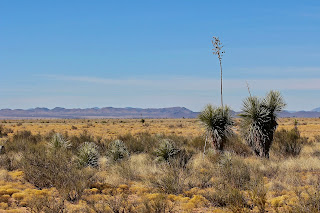If this turns out to be a rant I apologize. I have been watching PBS, the Ken Burns special on the Viet Nam war. If you’re old enough, you remember. I had completed my military obligation, came home from Southeast Asia before Americans started dying there. I was in college, didn’t have to worry about the draft. Americans don’t like to be reminded of the war we lost so we dwell on the ones we won. But the puzzle pieces fit together now since the big players are all dead and there are no special interests to sustain the myth. My generation experienced the war in many ways, from patriots who believed the propaganda to patriots who did not; from those who lost friends and loved ones to those who did not. As I watch the story unfold the feelings and memories leave me disillusioned still.
What weighs most is the 50 year interval and how things haven't changed. Every president from Kennedy to Ford acknowledged privately that the war in Viet Nam was unwinnable. But the choice was either, appear to be weak or send more troops, drop more bombs. In hindsight, the egos and blind ambition were so transparent it’s hard to imagine anyone trusting those people. Lies are when you say something you know is not true. If you believe your own fairy tale, it’s just a mistake. Government officials lied, the generals did both. At the end of the day, getting reelected or leaving a legacy was the first priority, more important than tens of thousands of American casualties. In the beginning, the “John Wayne” charicature general promised that with 40,000 troops he could win the war in six months. Three years later he went to the president with a two year plan, asking for a quarter million troops to win the same war. Nine years later, we abandoned the unwinnable war.
Now, 50 years up the road from that, we have been waging war in Afghanistan for 15 years, calling it something else. With some similarities to Viet Nam and some differences, we are currently preparing to send thousands more troops with a two year plan to win the fight against the bad guys (who change allegiance, reinventing themselves as need be). Is this deja vu or what? Our leaders are mostly indifferent to the lessons of Viet Nam but they are all committed to whatever it takes to be reelected. The logic I’ve been hearing all along is this: “I’m the one who will do ‘Right’ but that can’t happen if I don’t get elected.” One glaring weakness of a democracy is that we are free to elect terrible, incapable or corrupt leaders. I don’t think it’s a question of politics, rather a failure of human nature.
This little monologue could spin off in any direction but I don’t have the stomach for it. I’ll watch again tonight and have the same mixed feelings. As a young man I was both naive and malleable, wanting to believe the pro war propaganda. When you’ve been naive and realize how you’ve been exploited, unforgiving cynicism comes easy. From the president down; from the top general down, I have no reason to believe they have learned anything from history or that any of them care at all about the world their grandchildren will grow old in.



